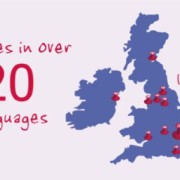Our top 5 locations for winter sunshine
If you want to escape the cold, the rain and the January blues, this one’s for you…
Check out our five great places for winter sun where you can swap boots for flip flops and duffle coat for swimsuit. Just make sure you send a postcard to make your friends envious back home…they won’t believe it’s all in the name of education!
1. Buenos Aires
If there’s one place sure to lift your winter mood it’s Buenos Aires. You just can’t help but be swept up in the colour and vibrance of this thrilling capital city of Argentina. Whether it’s the food (thick, succulent steaks like you’ve never tasted), wine (rich Malbecs are Argentina’s forte), dance (from impromptu tango in the streets to extravagant evening shows), shopping (boutiques, galleries, antique shops and more), nightlife (don’t even think of going out before midnight, and be prepared for daylight when you emerge) or architecture (old-world cafes alongside magnificent colonial buildings), there is something here for everyone. Add to this the summer sunshine between December and February and the relative good value of the Argentine peso, compared to western currencies, and you’re in for a real treat at little expense. Choose a regular Spanish course or up the ante by adding some dancing, polo, horse riding or volunteering to your adventure.
Spanish courses in Buenos Aires
2. Cape Town

If you want to get away for more than the usual week or two, or are even considering a job or lifestyle change, then head to South Africa for a TEFL course. A fantastic destination from mid-October to mid-February, when it basks in temperatures in the high twenties, this is the ideal place to spend 4 weeks learning how to teach English as a foreign language. When your head isn’t buried in a textbook, the treats that await you make it all worthwhile; the fascinating cultural melting pot that is Cape Town, delicious African and international cuisine, world-class locally-produced wines, pristine coastline, magnificent countryside and diverse flora and fauna. And once this is all over you have a passport to travel the world with your prestigious CELTA qualification – no need, then, to ever winter in the cold again!
3. Martinique
Our latest must-visit location is the Caribbean island of Martinique. Ok, we’re kind of biased as two of our team have recently taken a French course in Martinique, and come back with infectious enthusiasm for this palm-fringed island just north of St Lucia. They were overwhelmed by the friendliness and hospitality of the locals, the delicious local food, the clear turquoise waters, the beautiful climate, the excellent French tuition, beautiful accommodation, and activities such as diving and dancing. As a place to learn French in the winter, it doesn’t get much better than this – we’re hooked!
French course in Martinique – a first-hand review
Sun, sea, sand and French…in exotic Martinique
4. Galapagos
New year, new you – change your life with a 4-week CELTA course in Ecuador’s Galapagos Islands. You can obtain the most prestigious English language teaching qualification whilst interacting with the unique flora and fauna of these beautiful islands and participating in sustainable development and environmental protection projects. The aim of this course is for you to of course gain your teaching qualification, but also to educate the local community and make a difference. It’s a once in a lifetime experience! Next start dates 11th January, 8th February, 21st March 2016.
CELTA course in the Galapagos Islands, Ecuador
5. Rio de Janeiro

With verdant rainforests on one side, stunning mountains on the other and endless stretches of white sand beaches, Rio boasts one of the most spectacular urban settings in the world. There’s more to this spectacular city than Carnival, although if you can catch this week-long haze of samba, fiesta and hedonism it’s probably quite an appropriate introduction. And if you visit in winter this is exactly what you can do, as Carnival takes place February 5th-10th 2016 – the perfect antidote to winter back home and a great excuse to let your hair down. Solve the problem of finding accommodation at this popular time by staying with a local family whilst taking a language course – you don’t get better immersion in the language and culture than this!
Portuguese courses in Rio de Janeiro
Cactus offers language courses in more than 20 languages and 120 destinations worldwide. We also run adult evening and junior afternoon courses in the UK, which are the ideal way to learn the basics or brush up on existing language knowledge in advance of a holiday or business trip abroad.


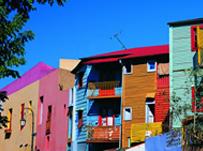


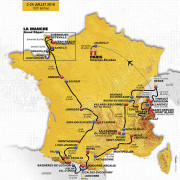

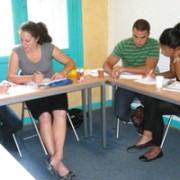
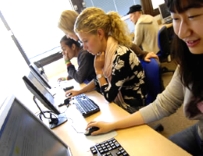

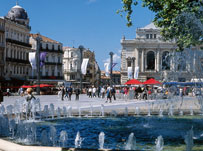




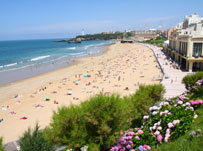






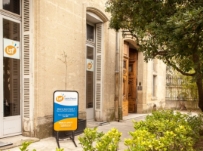 Yes, I would recommend the course as it offers a young adult both a personal and socio-linguistic learning curve within a regulated environment. Caspar was not the youngest student last year: there were 12 year olds at Montepellier, some more confident than others. It’s all a question of maturity. Any 12 year old will be amongst 14 / 15 year olds and there is, as you know, a huge difference in slight age differences during the teenage years. To be honest, I was more nervous of letting him go last year, than he was of going – both vigilance and homesickness were issues. The same is true this year; he is only just 14. There are always risks. But, these, we felt, were minimised last year as we always had the assurance that a family friend lived in Beziers (a short drive away). I also had some email correspondence with Mme Meson prior to his visit and she seems a good sort (which through experience, was proved and she was a delight to meet).
Yes, I would recommend the course as it offers a young adult both a personal and socio-linguistic learning curve within a regulated environment. Caspar was not the youngest student last year: there were 12 year olds at Montepellier, some more confident than others. It’s all a question of maturity. Any 12 year old will be amongst 14 / 15 year olds and there is, as you know, a huge difference in slight age differences during the teenage years. To be honest, I was more nervous of letting him go last year, than he was of going – both vigilance and homesickness were issues. The same is true this year; he is only just 14. There are always risks. But, these, we felt, were minimised last year as we always had the assurance that a family friend lived in Beziers (a short drive away). I also had some email correspondence with Mme Meson prior to his visit and she seems a good sort (which through experience, was proved and she was a delight to meet).